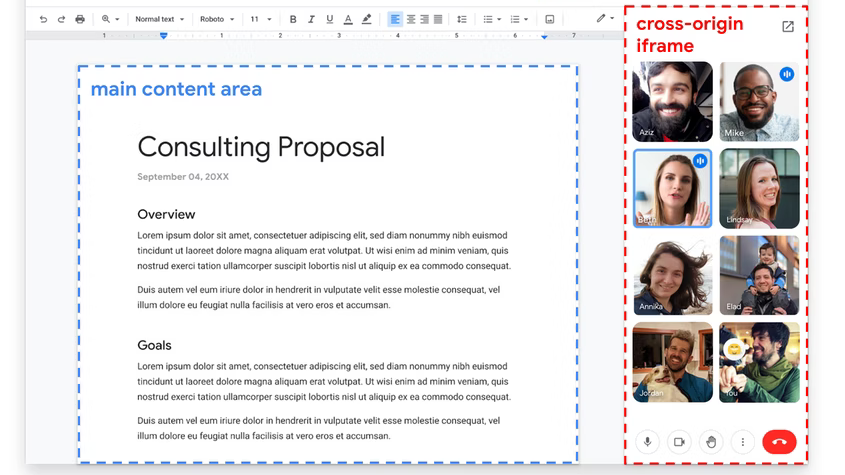The latest Google Chrome beta solves an unnerving video conferencing problem
The latest beta edition of Google Chrome (Beta 104) has offered a glimpse of a number of useful changes coming to the popular web browser.
The updates will be available on Android, Chrome OS, Linux, macOS, and Windows devices, with Chrome for iOS notably running a slightly different version.
Headlining the list of updates in version 104, available since earlier this week is Region Capture. Browser-based video conferencing has long been supported in Chrome, but screen sharing has sometimes resulted in the so-called "hall-of-mirrors effect".

In its latest form, Chrome’s Region Capture can now crop a video track and remove content - such as the live video feed of other call members - before sharing it remotely. This means no more awkward video sharing of participants when using video conferencing suites like Google Meet.
Other changes in Chrome 104
Media Queries, an important part of the responsiveness in the design of most web pages, have also been updated with new features. Developers can now use ordinary mathematical comparison operators, as well as logical operators “or” and “not,” when putting together a page.
On top of that, cookies set with an explicit “Expires” or “Max-Age” attribute are now capped to 400 days, which Google says is a number picked thanks to its roundness and its proximity to 13 months, or a little over one year. Previously uncapped, this will make sure that sites visited roughly once per year will continue to work as expected.
Other changes include allowing sites to place full-screen content and a pop-up window on separate, secondary screens; changes to permissions for the Web Bluetooth API; and improved Color Canvas Management for WebGL, which now includes “display-p3.”
Furthermore, changes to Origin Trials have been implemented. Set to be in trial until Chrome version 106, the browser’s Secure Payment Confirmation tool now lets users opt out of storing their credit and debit card details.
Also undergoing testing is the “Focusgroup” CSS property, a handy web development tool that is set to add focus navigation more consistently without the need for custom solutions.
Rounding out the list of updates are a number of service retirements, including the removal of the Universal 2nd Factor (U2F) API, which has now been replaced with the Web Authentication API.
- Shield your browsing activity from prying eyes with the best VPN services around
from TechRadar - All the latest technology news https://ift.tt/GSEhgb0
Comments
Post a Comment